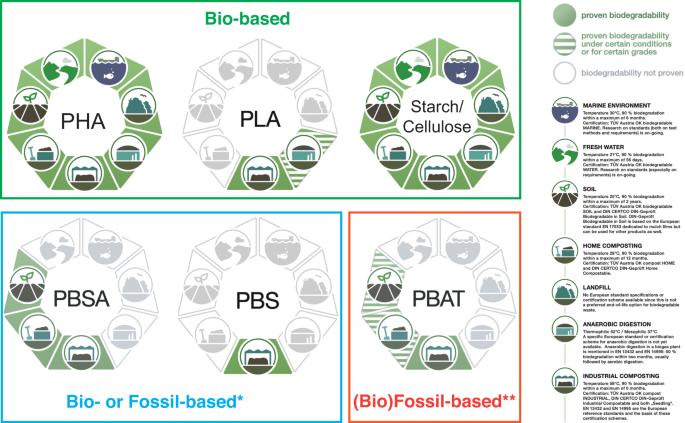Unlocking the Potentials of Biodegradable Plastics with Proper Management and Evaluation at Environmentally Relevant Concentrations
引用次数: 0
Abstract
Biodegradable plastics have been proposed as an alternative to conventional plastics for many applications, such as single-use plastic bags, disposable cutleries and tablewares, and agricultural plastic mulch films. However, concerns have arisen about environmental sustainability of biodegradable plastics, especially regarding degradability, generation of biodegradable micro- and nanoplastics, and release of additives. Here, we critically evaluate literature on the degradation and ecotoxicity of biodegradable plastics with the consideration of environmentally relevant concentrations. Our evaluation suggests that, provided with proper disposal and full biodegradation, biodegradable plastics, including biodegradable micro- and nanoplastics, would not accumulate substantially in the environment and would be far from reaching concentrations at which negative impacts on ecosystems can be expected. In addition, we highlight existing regulatory efforts to prevent adverse ecotoxicity of biodegradable plastics. To ensure timely biodegradation under various disposal conditions, we propose to calibrate the actual biodegradability in disposal environments against the intrinsic biodegradability in standards. Further, we recommend to supplement biodegradability certificates on biodegradable plastics with clear disposal instructions, to ensure proper end-of-life management. With proper testing, comprehensive labeling, and effective management, we believe that, for certain applications, biodegradable plastics are a promising substitute for conventional plastics.

在环境相关浓度下进行适当管理和评估,释放生物降解塑料的潜力
生物降解塑料已被提议作为传统塑料的替代品,应用于一次性塑料袋、一次性餐具和农用塑料地膜等许多领域。然而,人们对生物降解塑料的环境可持续性产生了担忧,尤其是在降解性、生物可降解微塑料和纳米塑料的生成以及添加剂的释放等方面。在此,我们对有关生物降解塑料降解和生态毒性的文献进行了批判性评估,并考虑了与环境相关的浓度。我们的评估结果表明,只要处置得当、生物降解充分,可生物降解塑料(包括可生物降解的微塑料和纳米塑料)不会在环境中大量累积,远远不会达到对生态系统产生负面影响的浓度。此外,我们还强调了为防止生物降解塑料产生不利生态毒性而做出的现有监管努力。为确保在各种处置条件下及时进行生物降解,我们建议将处置环境中的实际生物降解性与标准中的内在生物降解性进行校准。此外,我们建议在可生物降解塑料的生物降解性证书上辅以明确的处置说明,以确保正确的报废管理。我们相信,通过适当的测试、全面的标签和有效的管理,生物降解塑料在某些应用领域有望成为传统塑料的替代品。
本文章由计算机程序翻译,如有差异,请以英文原文为准。
求助全文
约1分钟内获得全文
求助全文

 求助内容:
求助内容: 应助结果提醒方式:
应助结果提醒方式:


